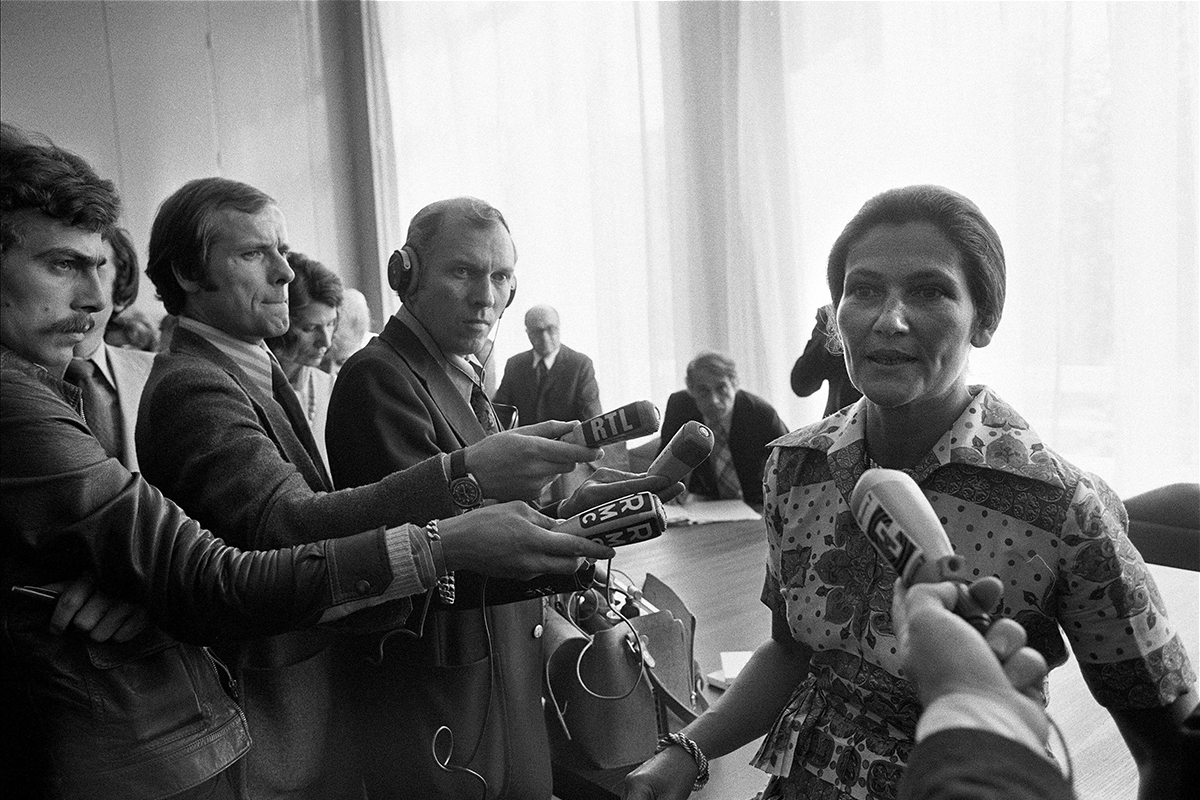Growing up, I was always acutely aware I was different from my father’s family. Their blond hair and blue, green, or hazel eyes starkly contrasted my brown hair, brown eyes, and olive-toned skin. For some reason, even though I share half my DNA with them, I never felt like I belonged.
My father is French, a former Catholic that gave up after his first communion, and his entire family still lives in France. My mother is German-Jewish, and my grandparents fled Nazi persecution in the 1930s. I grew up in a smallish suburb north of New York City, with a small Jewish community and no French community. People constantly told me “you’re not Jewish” because I didn’t go to Hebrew school or “you’re not French, you’re American” (as if those two identities are mutually exclusive). On top of that, I have experienced casual antisemitism from my own family, and France has not necessarily been accepting of Jews.
Despite this, both aspects of my identity have always been strong — but separate. For a long time, I felt like I was living two different lives.
As a high schooler, I spent my summers in France learning French and connecting with French culture, but the Jewish piece of me was missing (the ignorant antisemitic comments from my family didn’t help either). The summer before my senior year of high school, when I went backpacking around France, I wasn’t only searching for myself but a book as well: Une Vie, a memoir by French-Jewish politician Simone Veil, who I had learned about from a blog post recommending books for people who wanted to improve their French.
Four days into my trip, Veil died two weeks shy of her 90th birthday, which only made my search more urgent. At the end of my three-week trip, after searching every bookstore we passed, I finally found a copy in a bookstore in the fifth arrondissement of Paris, in the religion section (apparently a book written by a Jewish author can’t be anything but religious in France). I finished that trip in the Jewish Quarter of Paris, which was the first time I had ever seen a religious Jew in France, and for the first time in my life, my two worlds blended.
That night, I boarded my flight home to New York and my great adventure came to a close — though in a way, my new understanding of my identity was just getting started.
That book came with me to school every day that year, and I would read it during those few precious moments I wasn’t occupied with schoolwork. I had never felt such a connection to a book before. Simone Veil accomplished a lot in her life, so much in fact that I can’t fit it all into one essay (that’s why she wrote a whole 300-page book). She was a Holocaust survivor who, after her liberation, got married, had three kids, went to law school, and then began a career in politics in the 1960s. She consistently fought for women’s rights and interests, including easier access to contraception. Her biggest, and arguably most important, fight was for the legalization of abortion, which was achieved in 1975. Four years later, Simone was elected the first president of European Parliament where she worked to unify Europe.
To me, Simone Veil was a reflection of my very own Jewish values of unity, justice, and seeing humanity in others. She was then able to apply these values to create a better world, something I too aspire to do. She understood even her existence was radical: She wrote of her struggle to get abortion legalized, “Faced with a marked conservative environment, I presented the three flaws of being a woman, being in favor of the legalization of abortion, and, finally, being Jewish.”
I was halfway through Une Vie when I started university two years ago and had to put it down. Since then, I have pursued my own Jewish education and found my own way to practice Judaism. Last year, I went to France and openly identified as Jewish for the first time. My family fell silent when I pulled my menorah out of my suitcase, and I felt judging eyes looking at the Star of David I wore around my neck. I went back to the Jewish Quarter of Paris, which had been reduced to a small handful of restaurants and shops along with a couple of synagogues. It was hard for me to see an already small Jewish community shrink even more as Jews left France because they didn’t feel accepted, especially as I was just starting to accept myself.
I finally finished Une Vie recently and just as I closed the final page, I felt the gap in my identity close as well. I see so much of myself in Veil, although I don’t have nearly as much chutzpah as she did (yet). She was a French-Jewish feminist who showed me those three identities could coexist. She lived her life the way she wanted, even if people questioned her.
Now, I’m aware of the fact that it’s fun to be French and Jewish. Whenever I speak Hebrew (it’s still very much a work in progress), I can hit resh and chet just as easily as I hit all those weird French noises. I can make you challah and babka or crêpes and macarons. When I’m wearing a Breton striped top and my Star of David necklace, I feel most myself. I am a French-American Jew and wherever I am, I’m right where I belong.



